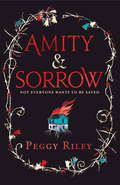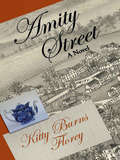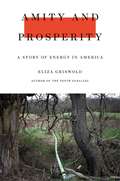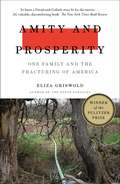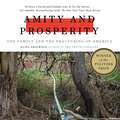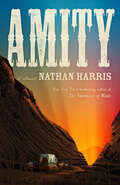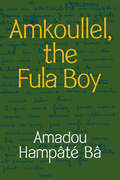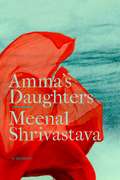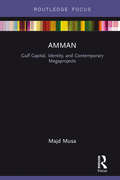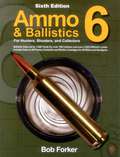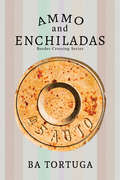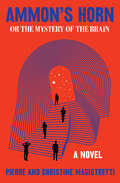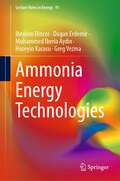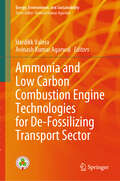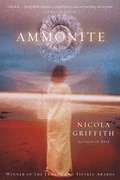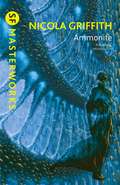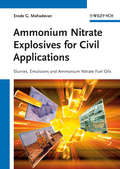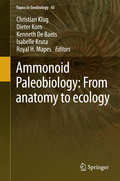- Table View
- List View
Amity
by Micol OstowHere is a house of ruin and rage, of death and deliverance. Here is where I live, not living. Here is always mine. When Connor's family moves to Amity, a secluded house on the peaceful banks of New England's Concord River, his nights are plagued with gore-filled dreams of demons, destruction, and revenge. Dreams he kind of likes. Dreams he could make real, with Amity's help. Ten years later, Gwen's family moves to Amity for a fresh start. Instead, she's haunted by lurid visions, disturbing voices, and questions about her own sanity. But who would ever believe her? And what could be done if they did? Because Amity isn't just a house. She is a living force, bent on manipulating her inhabitants to her twisted will. She will use Connor and Gwen to bring about a violent end as she's done before. Inspired by a true-crime story, Amity spans generations to weave an overlapping, interconnected tale of terror, insanity, danger, and death.
Amity & Sorrow: A Novel
by Peggy RileyA mother and her daughters drive for days without sleep until they crash their car in rural Oklahoma. The mother, Amaranth, is desperate to get away from someone she's convinced will follow them wherever they go--her husband. The girls, Amity and Sorrow, can't imagine what the world holds outside their father's polygamous compound. Rescue comes in the unlikely form of Bradley, a farmer grieving the loss of his wife. At first unwelcoming to these strange, prayerful women, Bradley's abiding tolerance gets the best of him, and they become a new kind of family. An unforgettable story of belief and redemption, AMITY & SORROW is about the influence of community and learning to stand on your own.
Amity & Sorrow: A Novel
by Peggy RileyAMITY & SORROW is a story about God, sex, and farming. It's THE LOVELY BONES meets WITNESS: an unforgettable journey into the horrors a true believer can inflict upon his family, and what it is like to live when the end of the world doesn't come.In the wake of a suspicious fire, Amaranth gathers her children and flees from the cult where her children were born and raised. Now she is on the run with no one but her barely-teenage daughters, Amity and Sorrow, neither of whom have ever seen the outside world, to help her. After four days of driving without sleep, Amaranth crashes the car, leaving the family stranded at a gas station, unsure of what to do next. Rescue comes in the unlikely form of a downtrodden farmer, a man who offers sanctuary when the women need it most. AMITY & SORROW is the story of these remarkable women, their lives before the night they fled, and their heartbreaking, hopeful future. Over the course of a season Amaranth will test the limits of her faith, and her daughters will test the limits of her patience. While Amity blossoms in this new world, free from her father's forbidding rules and ecstatic worship, Sorrow will move heaven and earth trying to get back home... And, meanwhile, the outside world hasn't forgotten about the fire on the compound.
Amity & Sorrow: A Novel
by Peggy RileyAMITY & SORROW is a story about God, sex, and farming. It's THE LOVELY BONES meets WITNESS: an unforgettable journey into the horrors a true believer can inflict upon his family, and what it is like to live when the end of the world doesn't come.In the wake of a suspicious fire, Amaranth gathers her children and flees from the cult where her children were born and raised. Now she is on the run with no one but her barely-teenage daughters, Amity and Sorrow, neither of whom have ever seen the outside world, to help her. After four days of driving without sleep, Amaranth crashes the car, leaving the family stranded at a gas station, unsure of what to do next. Rescue comes in the unlikely form of a downtrodden farmer, a man who offers sanctuary when the women need it most. AMITY & SORROW is the story of these remarkable women, their lives before the night they fled, and their heartbreaking, hopeful future. Over the course of a season Amaranth will test the limits of her faith, and her daughters will test the limits of her patience. While Amity blossoms in this new world, free from her father's forbidding rules and ecstatic worship, Sorrow will move heaven and earth trying to get back home... And, meanwhile, the outside world hasn't forgotten about the fire on the compound.
Amity Street
by Kitty Burns FloreyAmity Street continues the story that began in New Haven in 1856, chronicled in The Writing Master. It is now the year 1892. Anna Felice, a wealthy former opera star, travels from Rome, Italy, to America--Manhattan, New Haven, finally Amherst, Massachusetts--in search of the truth about her family history. In Amherst, she encounters George Mullen, who holds the key to her past; Hazel Cooper, the writing master's daughter, who is trying to chart the precarious course of her future; and Hazel's cousin, the eccentric, enigmatic Davey Chillick, whose placid existence is about to take a startling turn. And much to Anna's surprise, as she learns the shocking facts about her background, she begins to fall in love with a little country town and the people in it. The scope of the novel includes the social and political upheavals of the 1890s--among them the suffrage movement, the Rational Dress Society, and the conventions of courtship. It also encompasses the taming of a hawk, the right way to train a voice, the making of rhubarb wine, and--most of all--the many ways to define what we call home. Reflecting the author's affection for Victorian novels, New England history, and the towns and landscapes of Western Massachusetts, Amity Street is a thoughtful and compelling examination of a memorable cast of characters and the changing world in which they struggle to live their tumultuous lives.
Amity and Prosperity: One Family and the Fracturing of America
by Eliza Griswold<p>In Amity and Prosperity, the prizewinning poet and journalist Eliza Griswold tells the story of the energy boom’s impact on a small town at the edge of Appalachia and one woman’s transformation from a struggling single parent to an unlikely activist. <p>Stacey Haney is a local nurse working hard to raise two kids and keep up her small farm when the fracking boom comes to her hometown of Amity, Pennsylvania. Intrigued by reports of lucrative natural gas leases in her neighbors’ mailboxes, she strikes a deal with a Texas-based energy company. Soon trucks begin rumbling past her small farm, a fenced-off drill site rises on an adjacent hilltop, and domestic animals and pets start to die. When mysterious sicknesses begin to afflict her children, she appeals to the company for help. Its representatives insist that nothing is wrong. <p>Alarmed by her children’s illnesses, Haney joins with neighbors and a committed husband-and-wife legal team to investigate what’s really in the water and air. Against local opposition, Haney and her allies doggedly pursue their case in court and begin to expose the damage that’s being done to the land her family has lived on for centuries. Soon a community that has long been suspicious of outsiders faces wrenching new questions about who is responsible for their fate, and for redressing it: The faceless corporations that are poisoning the land? The environmentalists who fail to see their economic distress? A federal government that is mandated to protect but fails on the job? Drawing on seven years of immersive reporting, Griswold reveals what happens when an imperiled town faces a crisis of values, and a family wagers everything on an improbable quest for justice.</p>
Amity and Prosperity: One Family and the Fracturing of America - Winner of the Pulitzer Prize for Non-Fiction 2019
by Eliza GriswoldWinner of the 2019 Pulitzer Prize for General Nonfiction'At heart a David and Goliath story fit for the movies ... [A] valuable, discomforting book' The New York Times Book ReviewSeven years in the making, Amity and Prosperity tells the story of the energy boom's impact on a small town at the edge of Appalachia and of one woman's transformation from a struggling single parent to an unlikely activist.Stacey Haney is a local nurse working hard to raise two kids and keep up her small farm when the fracking boom comes to her hometown of Amity, Pennsylvania. Intrigued by reports of lucrative natural gas leases in her neighbours' mailboxes, she strikes a deal with a Texas-based energy company. Soon trucks begin rumbling past her small farm, a fenced-off drill site rises on an adjacent hilltop, and domestic animals and pets start to die. When mysterious sicknesses begin to afflict her children, she appeals to the company for help. Its representatives insist that nothing is wrong.Alarmed by her children's illnesses, Haney joins with neighbours and a committed husband-and-wife legal team to investigate what's really in the water and air. Against local opposition, Haney and her allies doggedly pursue their case in court and begin to expose the damage that's being done to the land her family has lived on for centuries. Drawing on seven years of immersive reporting, prizewinning poet and journalist Eliza Griswold reveals what happens when an imperilled town faces a crisis of values, and a family wagers everything on an improbable quest for justice.
Amity and Prosperity: One Family and the Fracturing of America - Winner of the Pulitzer Prize for Non-Fiction 2019
by Eliza GriswoldWinner of the 2019 Pulitzer Prize for General NonfictionSeven years in the making, Amity and Prosperity tells the story of the energy boom's impact on a small town at the edge of Appalachia and of one woman's transformation from a struggling single parent to an unlikely activist.Stacey Haney is a local nurse working hard to raise two kids and keep up her small farm when the fracking boom comes to her hometown of Amity, Pennsylvania. Intrigued by reports of lucrative natural gas leases in her neighbours' mailboxes, she strikes a deal with a Texas-based energy company. Soon trucks begin rumbling past her small farm, a fenced-off drill site rises on an adjacent hilltop, and domestic animals and pets start to die. When mysterious sicknesses begin to afflict her children, she appeals to the company for help. Its representatives insist that nothing is wrong.Alarmed by her children's illnesses, Haney joins with neighbours and a committed husband-and-wife legal team to investigate what's really in the water and air. Against local opposition, Haney and her allies doggedly pursue their case in court and begin to expose the damage that's being done to the land her family has lived on for centuries. Drawing on seven years of immersive reporting, prizewinning poet and journalist Eliza Griswold reveals what happens when an imperilled town faces a crisis of values, and a family wagers everything on an improbable quest for justice.(P)2018 Macmillan Audio
Amity: A Novel
by Nathan HarrisFrom the New York Times bestselling author of The Sweetness of Water comes a gripping story about a brother and sister, emancipated from slavery but still searching for true freedom, and their odyssey across the deserts of Mexico to escape a former master still intent on their bondage. New Orleans, 1866. The Civil War might be over, but formerly enslaved Coleman and June have yet to find the freedom they&’ve been promised. Two years ago, the siblings were separated when their old master, Mr. Harper, took June away to Mexico, where he hoped to escape the new reality of the postbellum South. Coleman stayed behind in Louisiana to serve the Harper family, clinging to the hope that one day June would return. When an unexpected letter from Mr. Harper arrives, summoning Coleman to Mexico, Coleman thinks that finally his prayers have been answered. What Coleman cannot know is the tangled truth of June&’s tribulations under Mr. Harper out on the frontier. And when disaster strikes Coleman&’s journey, he is forced on the run with Mr. Harper's daughter, Florence. Together, they venture into the Mexican desert to find June, all the while evading two crooked brothers who'll stop at nothing to capture Coleman and Florence and collect the money they're owed. As Coleman and June separately navigate a perilous, parched landscape, the siblings learn quickly that freedom isn't always given—sometimes, it must be taken by force. As in his New York Times bestselling debut The Sweetness of Water, Nathan Harris delves into the critical years of the Civil War&’s aftermath to deliver an intimate and epic tale of what freedom means in a society still determined to return its Black citizens to bondage. Populated with unforgettable characters, Amity is a vital addition to the literature of emancipation.
Amkoullel, the Fula Boy
by Amadou Hampâté BâBorn in 1900 in French West Africa, Malian writer Amadou Hampâté Bâ was one of the towering figures in the literature of twentieth-century Francophone Africa. In Amkoullel, the Fula Boy, Bâ tells in striking detail the story of his youth, which was set against the aftermath of war between the Fula and Toucouleur peoples and the installation of French colonialism. A master storyteller, Bâ recounts pivotal moments of his life, and the lives of his powerful and large family, from his first encounter with the white commandant through the torturous imprisonment of his stepfather and to his forced attendance at French school. He also charts a larger story of life prior to and at the height of French colonialism: interethnic conflicts, the clash between colonial schools and Islamic education, and the central role indigenous African intermediaries and interpreters played in the functioning of the colonial administration. Engrossing and novelistic, Amkoullel, the Fula Boy is an unparalleled rendering of an individual and society under transition as they face the upheavals of colonialism.
Amma's Daughters: A Memoir (Our Lives: Diary, Memoir, and Letters)
by Meenal ShrivastavaAs a precocious young girl, Surekha knew very little about the details of her mother Amma’s unusual past and that of Babu, her mysterious and sometimes absent father. The tense, uncertain family life created by her parents’ distant and fractious marriage and their separate ambitions informs her every action and emotion. Then one evening, in a moment of uncharacteristic transparency and vulnerability, Amma tells Surekha and her older sister Didi of the family tragedy that changed the course of her life. Finally, her daughters begin to understand the source of their mother’s deep commitment to the Indian nationalist movement and her seemingly unending willingness to sacrifice in the name of that pursuit. In this re-memory based on the published and unpublished work of Amma and Surekha, Meenal Shrivastava, Surekha’s daughter, uncovers the history of the female foot soldiers of Gandhi’s national movement in the early twentieth century. As Meenal weaves these written accounts together with archival research and family history, she gives voice and honour to the hundreds of thousands of largely forgotten or unacknowledged women who, threatened with imprisonment for treason and sedition, relentlessly and selflessly gave toward the revolution.
Ammachi: A Biography of Mata Amritanandamayi
by AmritaswarupanandaBiography of the famous Indian spiritual leader.
Amman: Gulf Capital, Identity, And Contemporary Megaprojects (Built Environment City Studies)
by Majd MusaGulf capital flows to Amman, Jordan, in the early twenty-first century and the investment of this capital in large-scale urban developments have significantly transformed the city’s built environment. Therefore, to understand urban transformation in Amman during this period it is important to analyze it against the backdrop of Gulf capital and its integration into Jordan’s economy and the integration of both the country’s economy and Gulf capital into the global capitalist economy. This book analyzes three cases of megaprojects planned for the city in the early twenty-first century: The New Downtown (Abdali), Jordan Gate, and Sanaya Amman. Drawing upon theories on urban development and capitalism, identity, and discourse, and urban development processes and cases in other cities, the book investigates how contemporary megaprojects in Amman fit into the capitalist economy and its modes of production, how capital flows construct a modern image of the city, and how the new image and megaprojects represent the city residents as modern and create Amman as a global city. This book presents a new approach to the study of the urban built environment in Amman, providing a valuable interdisciplinary contribution to the scholarly work on globalizing cities, especially in the Middle East.
Ammie, Come Home
by Barbara MichaelsIt begins as a lark -- a harmless diversion initiated by Washington, D.C., hostess Ruth Bennett as a means of entertaining her visiting niece, Sara. But the séance conducted in Ruth's elegant Georgetown home calls something back; something unwelcome ... and palpably evil. Suddenly Sara is speaking in a voice not her own, transformed into a miserable, whimpering creature so unlike her normal, sensible self. No tricks or talismans will dispel the malevolence that now plagues the inhabitants of this haunted place -- until a dark history of treachery, lust, and violence is exposed. But the cost might well be the sanity and the lives of the living.
Ammo & Ballistics 6: For Hunters, Shooters, and Collectors
by Robert ForkerThe entirely updated and revised Ammo & Ballistics 6 is now available and is better than ever! Ammo & Ballistics 6 contains data and illustrations on virtually every sporting cartridge sold in the USA. Besides clear and concise writing that clarifies the complexities of ballistic coefficients and energy versus momentum, this revised edition covers 200-plus calibers . . . from the .17 Mach 2 to the .700 Nitro Express. It contains information on rifle and handgun calibers, and it covers manufacturers, bullet weights, types, and construction. In addition, each caliber has an exact technical drawing with all dimensions and angles. There are over 3,000 tables with ballistic data for every caliber and every load for all commercially loaded hunting ammunition sold in the United States. Tables include velocity, energy, wind drift, bullet drop, and ballistic coefficients up to 1,000 yards. Manufacturers include A-Square, Aguila, ATK, Black Hills, CCI/Speer, Cor-Bon Bullet, Dakota Arms, Eley Ltd., Federal Cartridge, Fiocchi, Hirtenberger, Hornady, Patria Lapua Oy, Lazzeroni, Kynoch (Kynamco Ltd.), MagTech, Norma, Nosler, Inc., PMC (Eldorado Cartridge Corp.), Remington, Dynamit (Nobel-RWS Inc.), Sellier and Bellot, Ultramax, Weatherby, and Winchester. If you want to know where you will be hitting at long distances, this is the book for you. This book is, quite literally, indispensable for the hunter or shooter.
Ammo and Enchiladas (Border Crossing #2)
by BA TortugaA Border Crossing NovelAfter a night at the movies in Albuquerque, NM, Brantley’s best friend, Matt, is shot right in front him during a robbery. Stunned and devastated, Brant tries to help Matt’s husband, Travis, deal with the funeral details even as he struggles with his own grief and Travis’s blame. When Travis’s best friend arrives, Brant is both annoyed and grateful, because he is so darn tired and can use the help. Lex Espana is ashamed to admit he hasn’t seen his childhood best friend since Travis’s wedding. He’s even more amazed that he barely remembers Brant from that wedding, because he’s sure interested now. While it’s weird to fall for someone at a funeral, his feelings for Brant are real and make him long for a life he didn’t realize he was missing. Neither Lex nor Brant knows how to be part of an us, though, and they both have a lot to work through before they can settle in. To become a real couple, Brant and Lex will have to dig deep to get past the roadblocks in their relationship.
Ammon's Gift (Fountas & Pinnell Classroom, Guided Reading Grade 5)
by Jill Rubalcaba Laura ToltonA SISTER'S DYING PLEA When Ammon's feverish sister begs him to use his gift of seeing shapes in stones to help her get well, he wonders—does he really have a gift? NIMAC-sourced textbook
Ammon's Horn, or The Mystery of the Brain: A Novel
by Pierre Magistretti Christine MagistrettiFive cutting-edge scientists compete for $100 million and control of a new institute dedicated to eradicating Alzheimer&’s in this edifying, Da Vinci Code-esque thriller.Spurred by his wife&’s Alzheimer&’s diagnosis and disenchanted with the slow progress in finding a cure, a rich Swiss businessman launches a contest for promising young neuroscientists who can think &“outside the box.&” Chosen for their scientific excellence and originality, they must travel throughout Europe in search of the answers to five fiendishly difficult riddles, each combining an enigmatic neuroscientific question with a geographical and historical challenge.As their personal stories unfold, the competitors share their moments of elation and disappointment when they solve a riddle or reach a dead end. Soon a conspiracy materializes to threaten and endanger the scientists, which at first seems random, but then becomes increasingly deliberate and targeted.The nature of the riddles and the talents of the competitors open a world of discovery for us too as we learn about some of the most pressing areas in current brain research, such as neurodegenerative diseases, stem cell grafts, artificial intelligence, drug addiction, genetics, and the mechanisms of memory. And as the candidates visit some of the great European cities—Prague, Vienna, Cordoba, Cambridge, Geneva, Venice—we also experience their beauty and intrigue.
Ammonia Energy Technologies (Lecture Notes in Energy #91)
by Ibrahim Dincer Dogan Erdemir Muhammed Iberia Aydin Huseyin Karasu Greg VezinaThis book is the first to cover all aspects of using ammonia for energy - from production to last use. The book explains the fundamentals and basic concepts about hydrogen and ammonia before examining their production methods. Then it covers ammonia production and storage techniques. Furthermore, the book contains case studies that demonstrate the use of ammonia technology. Ammonia energy systems are explained, and the technologies and methods used with them are explained with illustrative examples. Finally, the book lays out future directions in the development of ammonia energy systems. It is expected that the book will be of interest to all researchers and professionals interested in new energy sources.
Ammonia and Hydrogen for Green Energy Transition (Energy, Environment, and Sustainability)
by Avinash K. Agarwal Sudarshan Kumar Bhupendra Khandelwal Paramvir SinghThe subject of this book pertains to the applicability of zero-carbon vector fuels, such as ammonia or hydrogen, in a practical scenario. This monograph extensively discusses the applicability or challenges associated with ammonia fuels for both IC-engine and gas turbine applications. It provides insights into ammonia cracking through catalytic membrane reactors for hydrogen production. This book also discusses NOx mitigation techniques for ammonia combustion, such as MILD combustion, two-stage combustion, porous assisted combustion, plasma combustion, and high-pressure combustion. This book also provides details on the chemical kinetics of ammonia and hydrogen combustion. The book can be a valuable reference for researchers and professionals interested in green energy and allied fields.
Ammonia and Low Carbon Combustion Engine Technologies for De-Fossilizing Transport Sector (Energy, Environment, and Sustainability)
by Avinash Kumar Agarwal Hardikk ValeraThis book explores the potential of ammonia (NH₃) as a next-generation fuel for achieving Net Zero emissions in the transport and power sectors. With increasing regulatory pressure to reduce carbon dioxide (CO₂) and carbon monoxide (CO) emissions, industries are seeking non-carbonaceous energy sources. Ammonia, with its carbon-free molecular structure, offers a promising alternative, but challenges such as high auto-ignition temperature, slow chemical kinetics, and combustion efficiency must be addressed. This book presents state-of-the-art research on ammonia-fueled internal combustion engines (ICEs), emission characteristics, and combustion enhancement techniques. It covers critical risk factors for ammonia-fueled marine diesel engines, safety considerations, pre-chamber ignition for lean combustion, and advanced optical techniques for soot characterization in fuel spray flames. By providing insights into cutting-edge developments, this book serves as a valuable resource for researchers, engineers, and industry professionals working toward sustainable and low-carbon combustion technologies.
Ammonite
by Nicola GriffithChange or die. These are the only options available on the planet Jeep. Centuries earlier, a deadly virus shattered the original colony, killing the men and forever altering the few surviving women. Now, generations after the colony has lost touch with the rest of humanity, a company arrives to exploit Jeep, and its forces find themselves fighting for their lives. Terrified of spreading the virus, the company abandons its employees, leaving them afraid and isolated from the natives. In the face of this crisis, anthropologist Marghe Taishan arrives to test a new vaccine. As she risks death to uncover the women's biological secret, she finds that she, too, is changing--and realizes that not only has she found a home on Jeep, but that she alone carries the seeds of its destruction. Ammonite is an unforgettable novel that questions the very meanings of gender and humanity. As readers share in Marghe's journey through an alien world, they too embark on a parallel journey of fascinating self-exploration.
Ammonite (S.F. MASTERWORKS)
by Nicola GriffithChange or die. These are the only options available on the planet Jeep. Centuries earlier, a deadly virus shattered the original colony, killing the men and forever altering the few surviving women. Now, generations after the colony has lost touch with the rest of humanity, a company arrives to exploit Jeep - and its forces find themselves fighting for their lives.Terrified of spreading the virus, the company abandons its employees, leaving them afraid and isolated from the natives. In the face of this crisis, anthropologist Marghe Taishan arrives to test a new vaccine. As she risks death to uncover the women's biological secret, she finds that she, too, is changing - and realizes that not only has she found a home on Jeep, but that she alone carries the seeds of its destruction ...Winner of the James Tiptree, Jr. Award 1993
Ammonium Nitrate Explosives for Civil Applications: Slurries, Emulsions and Ammonium Nitrate Fuel Oils
by Erode G. MahadevanThe book describes the science and technology of formulation and manufacturing of non-nitroglycerine explosives with ammonium nitrate as the main ingredient. Based on the author's industry experience of more than thirty years, it provides an unparalleled treatment of one of the commercially most important classes of explosives and therefore stimulates further research and development efforts in the field of explosives for civil applications.
Ammonoid Paleobiology: From Anatomy To Ecology (Topics in Geobiology #43)
by Christian Klug Dieter Korn Kenneth De Baets Isabelle Kruta Royal H. MapesThis two-volume work is a testament to the abiding interest and human fascination with ammonites. We offer a new model to explain the morphogenesis of septa and the shell, we explore their habitats by the content of stable isotopes in their shells, we discuss the origin and later evolution of this important clade, and we deliver hypotheses on its demise. The Ammonoidea produced a great number of species that can be used in biostratigraphy and possibly, this is the macrofossil group, which has been used the most for that purpose. Nevertheless, many aspects of their anatomy, mode of life, development or paleobiogeographic distribution are still poorly known. Themes treated are biostratigraphy, paleoecology, paleoenvironment, paleobiogeography, evolution, phylogeny, and ontogeny. Advances such as an explosion of new information about ammonites, new technologies such as isotopic analysis, tomography and virtual paleontology in general, as well as continuous discovery of new fossil finds have given us the opportunity to present a comprehensive and timely "state of the art" compilation. Moreover, it also points the way for future studies to further enhance our understanding of this endlessly fascinating group of organisms.


